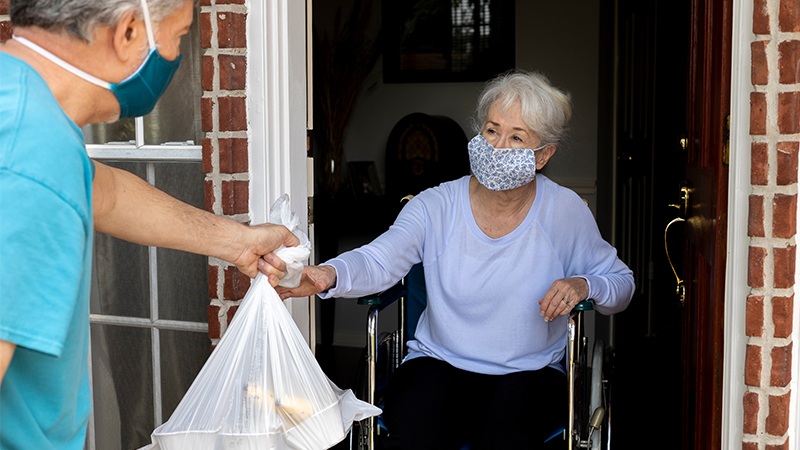
Utilization Management
Verify eligibility, optimize reviews, and streamline appeals and grievances.

Utilization Management
Verify eligibility, optimize reviews, and streamline appeals and grievances.

Care Management
Enable preventative care, manage medical interventions, and efficiently report on program outcomes.

Medication Management
Perform and bill medical services, ensure medications are safe and effective, and identify ways to improve care.

Quality Management
Improve outcomes, lower costs, and adhere to standards, such as HEDIS, Stars, and PQA.

Specialty Pharmacy

I would be healthier “if only”:
Most of us can imagine that one silver bullet that would put us on the path to wellness. Often it is expressed more as an excuse than something attainable, but what if the difference between being healthy and being ill was:
These examples may seem extreme, but they are a genuine health barrier for many. In fact, some research shows that medical care only contributes to 10 to 20 percent of a person’s overall health. The remaining 80 to 90 percent are fundamental needs, what the healthcare industry broadly refers to as social determinants of health (SDoH)1. These somewhat hard to identify social risk factors include financial security, access to food, neighborhood crime rates, housing, education, employment, and more. Unfortunately, Medicare beneficiaries with complex health needs are much more likely to be affected2.
Considered to be one of the most vulnerable populations in the US, Medicare beneficiaries have complex healthcare needs that require an understanding of both contributing medical and social factors2. In 2020, CMS announced, “chronically ill patients with Medicare Advantage [have] the possibility of accessing a broader range of supplemental benefits that are not necessarily health-related but have a reasonable expectation of improving or maintaining the health or overall function of the enrollees. These benefits can address social determinants of health for beneficiaries with chronic disease. For example, beneficiaries enrolled in a Medicare Advantage plan could now receive home meal delivery in more circumstances, transportation for non-medical needs like grocery shopping, and home environment services,” to improve chronic illness related barriers3.
Keeping enrollees healthy through preventive care, within cost effective ranges, is an inherent goal for Medicare Advantage plans. While offering SDoH Medicare benefits may seem an added financial burden, considering implementation reduces adverse health events, such as ER visits and readmissions, saving 15 to 20 billion dollars annually4,5, initial investment is outweighed by long-term benefits. For example, participation in home-delivered meals programs can contribute to the health and independence of older adults, especially those who are food insecure or those who are making transitions from acute, subacute, and chronic care settings to the home6. Additionally, participation in a medically tailored meals program appears to be associated with fewer hospital and skilled nursing admissions and less overall medical spending7.
What Does the Future of SDoH Look Like?
While acknowledging the importance of SDoH in the patient’s care continuum is a step in the right direction, there is more to be done. Current interventions are just the beginning, here are some of the emerging innovations in the industry with the potential to revolutionize care.
Increased Patient Analysis and Targeting
Developing the ability for health plans, primary and acute care centers to identify those who may benefit most from SDoH interventions would help target the most vulnerable populations. The criteria could be based on multiple factors including the USDA Food Access Research Atlas, public transportation services, socio-economic statistics in home zip codes, as well as the distance to primary care physicians, hospitals, pharmacies, or other healthcare services. Additionally, proactively targeting other SDoH barriers such as lose of spouse, expired driver’s license, and those who have moved in with a family member will help healthcare providers give more comprehensive care to their patients while also preventing adverse events resulting in lower medical costs.
New and Innovative Contributors Offer Unique Interventions
There are many innovative solutions entering the healthcare arena to address social insecurities. Grocers are expanding options for food delivery and medically catered meal options to those who may not have the means to grocery shop on their own. Meal delivery services could also screen their customers for common risk factors to target food delivery options more efficiently and effectively. Pharmacies play a major role in supporting local health issues as well; they can provide population health screenings to the neighborhoods they are engrained in and offer prescription delivery services from a licensed pharmacy tech who can collect needed information about medication utilization and work with dispensing pharmacist to intervene.
Remote Patient Monitoring
Remote monitoring allows providers to establish closer relationships and more closely survey patients who may experience transportation hinderances. It limits the need for patients to make frequent trips to clinics for out of the home lab draws and enables longer stints between in-person doctor visits. Telephonic or application driven clinical interventions could help dissuade the need for higher levels of medical care.
Addressing Concurrent Issues such as Loneliness
Experiencing loneliness can be a common issue among the elderly as well as those unable to travel outside their home. Supporting and expanding congregate meal programs for the elderly will help curb feelings of loneliness and build a sense of community. Phone Buddy support programs can also be implemented to check in on those who have limited support. Another option includes coordinating teen/elder after school programs to forge intergenerational relationships. All these programs could have a positive impact on addressing the growing issue of loneliness on mental health.
If you are interested in learning more about how AssureCare incorporates Social Determinants of Health into our platform and how our solutions can support your organization, please click here.
References:

Brian Jones
RDN, CCM, POPM, FAND, Clinical Product Manager, AssureCare